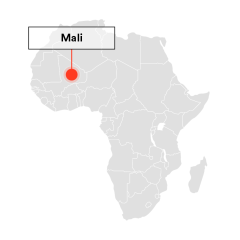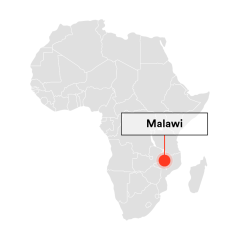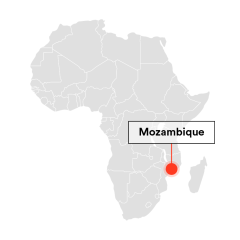Engage traditional and faith leaders to end VAWG

Engage traditional and faith leaders to end VAWG
Case Studies

In 2020, Spotlight Initiative worked with influential Christian and Muslim leaders in Mali to spread messages that condemn VAWG. The President of the High Islamic Council of Mali and the Representative of the Episcopal Conference of Mali appeared in a series of Spotlight Initiative-supported television and radio messages. Through these messages, these leaders denounced VAWG, citing religious texts that support respectful relationships. This campaign ran for two months. During this period, television messages were viewed 40,878,000 times and radio messages were heard 4,663,300 times. In addition, the social media campaign reached 346,680 people.
These messages included, “Many of the Prophet’s hadiths are about respect for women...God himself takes care of anyone who protects women”, and “Women are not slaves, not goods. Let us take care of women, treat them as we treat ourselves and love them as we love ourselves. Let’s do to others as we would have them do to us”. They also drew on a traditional saying from Mali, “One soul may be older than another, one force may be greater than another, but no soul is better than another”.
In a country like Mali, where 95% of the population identify as Muslim and 3% identify as Christian, the support of high-profile faith leaders is deeply important to changing social norms. The campaign also seems to have encouraged survivors of violence to seek help, since the weeks after the campaign the number of survivors visiting the one-stop centre in Mali’s capital, Bamako, to access services increased by 65%.



In Malawi, Spotlight Initiative established a number of Chiefs Forums in 2020 to support work to end VAWG. Spotlight Initiative consulted with 3,421 community stakeholders to establish buy-in and to ensure that the Chiefs were better held accountable to their communities, especially women and girls. Through these forums they provided training to 1,561 Chiefs to support them to become Champions of Change.
Following this training, these traditional leaders collectively annulled 1,222 child marriages (98% of the registered child marriages in the 6 districts) and supported the re-enrolment of these girls into school. Spotlight Initiative reports that these leaders are also now actively monitoring and implementing interventions to end VAWG within their jurisdiction. In 2021, several leaders established GBV patrols in collaboration with mentors and child protection workers, which led to the identification and referral of 897 instances of VAWG. Of these, 60% were referred through mobile and district courts which now prioritise instances of VAWG following pressure from Spotlight Initiative-funded community working groups focused on gender equality.



In 2021, the Spotlight Initiative programme in Mozambique worked with local leaders to support them to prevent child marriage. They established provincial forums of traditional authorities in three provinces where 133 informal and formal decision-makers were engaged in dialogues on gender and VAWG. Overall, 1,038 community leaders took part in “reflection sessions” to discuss ways to prevent child marriage.
“Behaviour change takes time. With the support of the Government and Spotlight Initiative, we are leading several community-driven actions towards gender equality” - Community leader from Gaza Province, Mozambique.
These interventions have contributed to increased coordination between community members, community leaders, civil society organisations and the government. In one province, this improved coordination led to the disclosure of five cases of child marriage, ten referrals of VAWG, and the rescue of fifteen girls from forced unions. They have also engaged in training around how to conduct referrals and support survivors to access essential services. Local leaders reported improved knowledge and understanding about how to do this as a result of this training.







